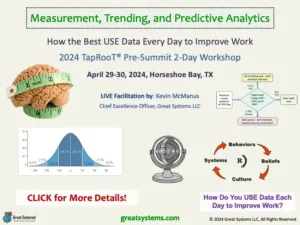Kevin McManus talks with David Brandt of IISE about how essentialism is a key element of industrial and systems engineering.
Industrial Engineering and Essentialism with Kevin McManus
In this podcast, Industrial and Systems Engineering (IISE) web editor David Brandt chats with IISE Fellow and ISE magazine columnist Kevin McManus.
For starters, they explore the discipline of Essentialism and what it has in common with industrial engineering. Also, they discuss the various ways industrial and systems engineers apply best practices for continuous improvement in both career and personal life.
How Do We Define Essentialism?
For reference, Oxford Languages defines essentialism as ‘a belief that things have a set of characteristics which make them what they are.’ Also, it is the task of science and philosophy to discover and express such characteristics.
Wikipedia defines essentialism as ‘the view that objects have a set of attributes that are necessary to their identity.’ In early Western thought, Plato’s idealism held that all things have such an “essence”— an “idea” or “form”.
When some form of moderate, non-deterministic essentialism is necessary for explanation, industrial and systems engineering can help. ISE skills can help better define, clarify, and validate forms of social sciences that may be critical and have emancipatory potential.
For example, what key workforce engagement factors drive customer satisfaction and loyalty outcomes? How can we systematically define, measure, and improve workforce engagement, morale, and motivation levels via essentialism?
Keep improving!
Kevin McManus, Chief Excellence Officer, Great Systems
WATCH over 50 kaizen and workplace health improvement videos on my Great Systems YouTube channel.
CHECK OUT my ‘Teach Your Teams’ workbooks on Amazon.com
LIKE Great Systems on Facebook
© Copyright 2024, Great Systems LLC, All Rights Reserved




